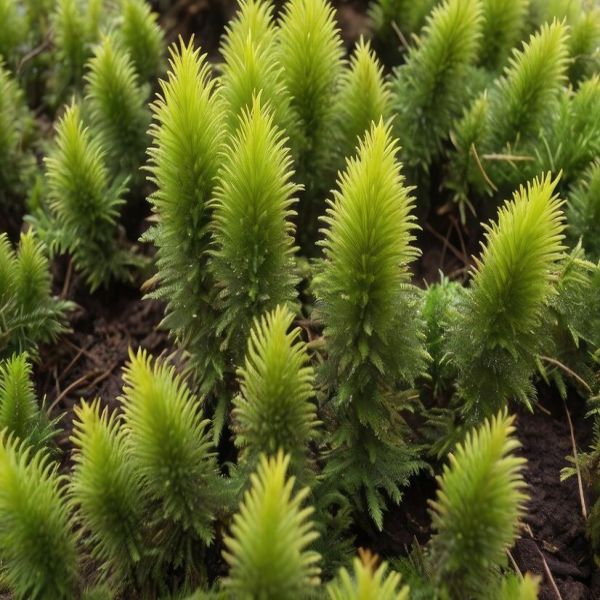Homeopathic research data - Lycopodium clavatum action in Alzheimer’s disease &dementia
lycopodium helps in reducing cognitive impairment and dementia related to alzheimer's disease due to its AchE inhibiting activity.
updated on:2024-02-21 06:50:48
Lycopodium
clavatum (Lyc) is a widely used homeopathic medicine for the liver, urinary and
digestive disorders. Recently, acetyl cholinesterase (AchE) inhibitory activity
has been found in Lyc alkaloid extract, which could be beneficial in dementia and
memory impairment problems.
Cerebral
blood flow (CBF) carries various factors, mediators, nutrients and metabolites
to meet the metabolic demands of brain cells. Neuronal activation favors
increase in CBF for the responding local area.
Any obstruction in the cerebral blood flow CBF has
been seen associated with cognition deficits or dementia. It is known that Alzheimer's
disease (AD) and other types of dementia are associated with reduced cerebral
blood flow due to vascular amyloidosis, oxidative stress and endothelial
dysfunction.
Lycopodium
clavatum (Lyc), commonly known as club moss, is the most widespread species in
the genus Lycopodium of the family Lycopodiaceae. Extraction of crushed spores
of Lyc as mother tincture MT and as
potencies are commonly used homeopathic medicines mainly
for liver function, urinary and digestive disturbances, rheumatism, epilepsy
and pulmonary disorders etc.
A study by
Calderón et al. (2013) has shown that Lyc has AchE inhibiting activity. AChE
inhibitor like Donepezil is clinically used for the treatment of AD patients
[1]
Alzheimer's
disease (AD) is a chronic, progressive, neurodegenerative disorder of the brain
characterized clinically by deterioration in the key symptoms of activities of
daily living, behavior, and cognition.
The cholinergic hypothesis states that the
cognitive decline in Alzheimer’s disease [AD] is secondary to deficits in
central cholinergic neurotransmission1 resulting from a loss of
acetylcholine (ACh).
Cholinesterase (ChE) inhibitors enhance central
cholinergic function by inhibiting the enzymes that degrade ACh, thereby
increasing the availability of ACh to stimulate
nicotinic and muscarinic receptors within the brain.[2]
The study
outcome shows that Lycopodium clavatum mother tincture[MT] and 200 potency
showed improvement in learning and memory. There was increased cerebral blood
flow in STZ (ICV) treated rats at all
the potencies of Lyc studied.
References
1.
Effect of homeopathic Lycopodium
clavatum on memory functions and cerebral blood flow in memory-impaired rats Kashif
Hanif, Manoj Kumar, Neetu Singh, Rakesh Shukla
https://www.sciencedirect.com/science/article/abs/pii/S1475491614000800
2.
https://www.ncbi.nlm.nih.gov/pmc/articles/PMC4052996/


Recommended For You
Research studies on the role of homeopathic medicines in bone mineralization & osteoporosis
Homeopathic drugs symphytum and calcarea group of remedies help bone mineralization. A few animal studies conclude that homeopathic dilutions, caused a significant increase of calcium-hydroxyapatite concentration in bones of experimental animals. Further human clinical trials and studies are required to confirm the role of these drugs in humans with irrefutable evidence although these drugs are clinically used effectively for healing of bone fractures.
Homeopathic research data - Lycopodium clavatum action in Alzheimer’s disease &dementia
lycopodium helps in reducing cognitive impairment and dementia related to alzheimer's disease due to its AchE inhibiting activity.
Homeopathic research – Lycopodium in inflammatory bowel diseases
Lycopodium Mitigates Oxidative Stress and Inflammation in the Colonic Mucosa of Acetic Acid-Induced Colitis in Rats
Hypericum perforatum in injuries &pains
Hypericum is one of the crucially important medicines used in homeopathy for mechanical injuries of spine. Spinal concussions and neuralgias.It has great role in wound healing also.
Hypericum perforatum in neuro psychiatric disorders- research updates
H. perforatum decreases oxidative stress and consequently prevent neurotoxicity, inflammation, and gastrointestinal problems.It has some role in managing depression too.
Related Links

sdfgh
